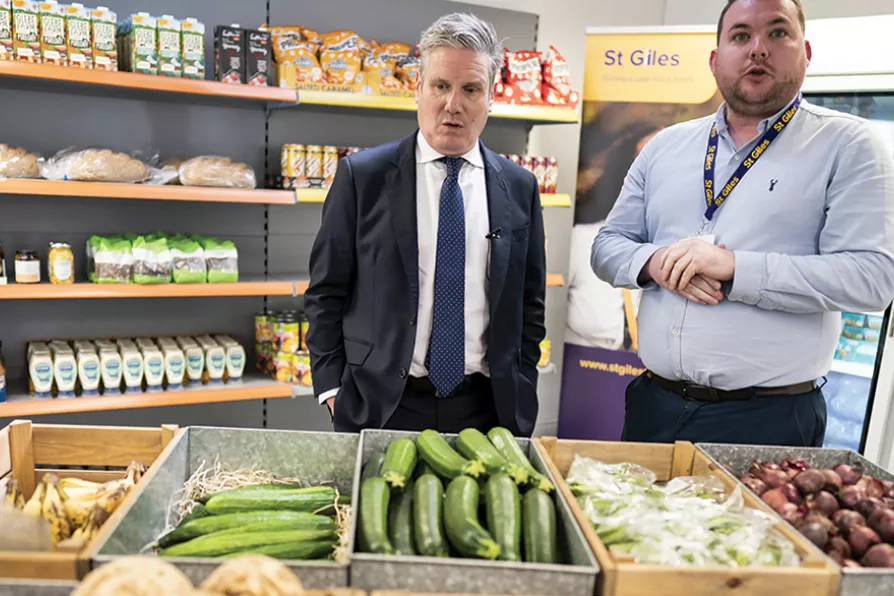John Wojcik pays tribute to a black US activist who spent six decades at the forefront of struggles for voting rights, economic justice and peace – reshaping US politics and inspiring movements worldwide

 TIME TO ACT: Keir Starmer is shown surplus food produce available at The Pantry at St Giles Trust in south London a local food resource center, April 2023
TIME TO ACT: Keir Starmer is shown surplus food produce available at The Pantry at St Giles Trust in south London a local food resource center, April 2023
THIS weekend marks the 110th anniversary of the Burston Strike School Rally in Norfolk, commemorating the longest strike in British history. In 1914, beloved teachers Tom and Kitty Higdon, both socialists and trade unionists, were dismissed by the local authorities.
In protest, their students walked out, initiating a strike that lasted 25 years. Since 1984, the rally has been an annual event, symbolising the labour movement’s strength and progressive ideas in the east of England. This year’s rally also celebrates the recent electoral shift in the region, where the Conservative Party has been replaced by Labour, Lib Dems, and Reform UK in key constituencies. The rally will draw thousands, reflecting the changing political landscape.
The east of England has seen a significant political transformation, with Labour now holding 31 seats, the Lib Dems seven, and Reform UK securing three. The region also has a Green MP in Waveney Valley. In many areas, Reform UK has become a significant force, even in constituencies they didn’t win, demonstrating the shifting political allegiances. Despite the high engagement in political activities during the election, voter turnout was low, with some areas like Luton and South Bedfordshire seeing less than 50 per cent participation.

In Part 4 of her look at the Chinese revolution JENNY CLEGG addresses the relationship between the Peasant Movement and the National Movement

In the run-up to the Communist Party congress in November ROB GRIFFITHS outlines a few ideas regarding its participation in the elections of May 2026











